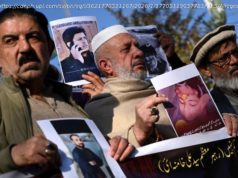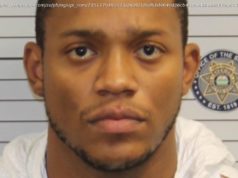 Penn State’s costs related to the Jerry Sandusky scandal are approaching a quarter-billion dollars and growing, five years after the former assistant football coach’s arrest on child molestation charges.
Penn State’s costs related to the Jerry Sandusky scandal are approaching a quarter-billion dollars and growing, five years after the former assistant football coach’s arrest on child molestation charges.
The scandal’s overall cost to the school has reached at least $237 million, including a recent $12 million verdict in the whistleblower and defamation case brought by former assistant coach Mike McQueary, whose testimony helped convict Sandusky in 2012.
The university has settled with 33 people over allegations they were sexually abused by Sandusky, and has made total payments to them of $93 million.
The total also covers the $48 million « fine » levied by the NCAA that is funding anti-child-abuse efforts in Pennsylvania, $27 million in lawyer fees to defend lawsuits, nearly $14 million that includes the legal defense of three former administrators facing criminal charges for their handling of Sandusky complaints and $5.3 million for crisis communications and other consultants.
The school’s latest financial statement said insurers have covered $30 million in costs, while other insurance claims remain pending.
The school also was hit in November with a $2.4 million fine from a federal investigation, started immediately after Sandusky was arrested, that concluded the university repeatedly violated campus crime reporting requirements.
A look at where some of the other pending Sandusky-related matters stand:
—
ADMINISTRATORS’ CRIMINAL CASE
A senior judge sitting in Harrisburg is considering a request by three former high-ranking Penn State administrators to throw out their criminal charges, following an oral argument that was held in Harrisburg in October.
Former Penn State President Graham Spanier, former Athletic Director Tim Curley and former Vice President Gary Schultz are accused of not responding properly to McQueary’s 2001 complaint that Sandusky was sexually abusing a boy in a team shower. They are also accused of putting children in danger.
The attorney general’s office wants to add a new count, of conspiracy to commit endangering the welfare of children, against all three defendants. Judge John Boccabella has not indicated when he might rule.
The three men have consistently maintained their innocence.
—
SANDUSKY’S APPEAL
Sandusky is serving a 30- to 60-year sentence in Greene State Prison on a 45-count conviction for sexual abuse of 10 boys, and he is currently pursuing an appeal in county court near State College.
In November, the judge handling that appeal — Judge John Cleland, who was also the trial judge — took himself off the case after Sandusky’s lawyers raised objections to Cleland’s role in a December 2011 meeting in a hotel the night before Sandusky waived a preliminary hearing.
Cleland’s sternly worded order included a footnote saying his review of the 34 issues raised by Sandusky found none of them had merit.
The state court system is working on appointing a new judge, but that decision has not been made.
—
SPANIER V. PENN STATE
Penn State countersued Spanier last month, saying he violated his employment agreement by not disclosing what he knew about Sandusky before Sandusky’s 2011 arrest. The school is seeking repayment of millions of dollars it has paid him over the past five years.
Spanier’s lawsuit claims the school violated an agreement made when he was pushed out of the top job — days after Sandusky was charged — by making public comments that were critical of him and not living up to promises regarding office space, teaching opportunities and payment of legal costs.
—
SPANIER V. FREEH
A judge has scheduled a hearing later this month in a lawsuit by Spanier against former FBI Director Louis Freeh and his law firm, who were paid by Penn State to produce a 2012 report into how Spanier and other top administrators handled the Sandusky matter.
Judge Robert Eby will hear oral argument in Freeh’s preliminary objections to the lawsuit. Spanier is seeking damages for the reputational and economic harm he alleges resulted from the report.
—
PATERNO V. NCAA
The family of former Penn State head coach Joe Paterno is suing the NCAA, saying it damaged the Paterno estate’s commercial interests by relying on conclusions about Paterno in the Freeh report. Two former Paterno assistants, son Jay Paterno and Bill Kenney, are also suing, saying they have not been able to find comparable work because of the Freeh report. The most recent action in that case involved a dispute over subpoenas. Paterno died in 2012.






